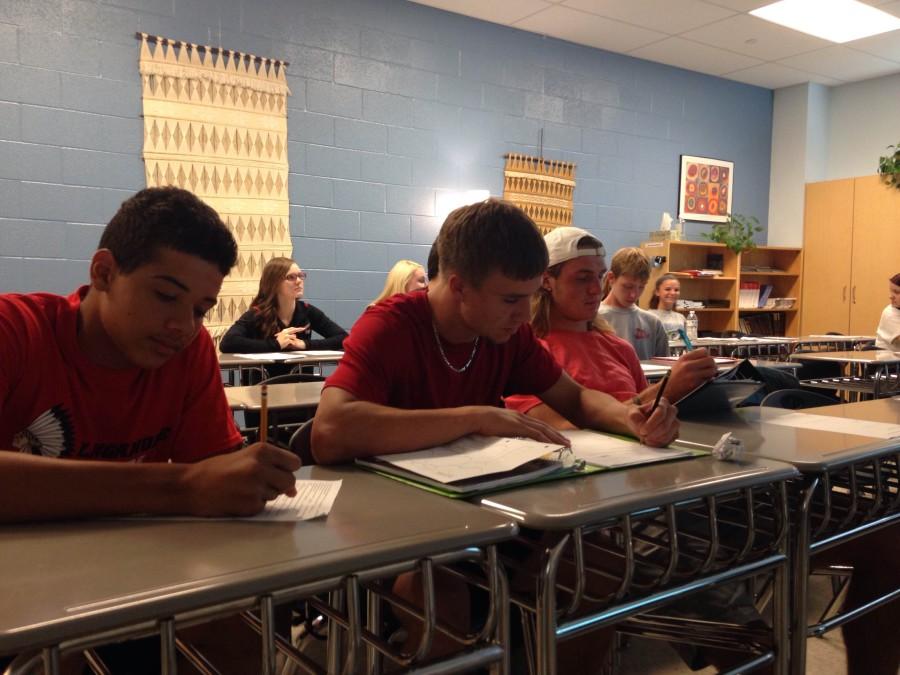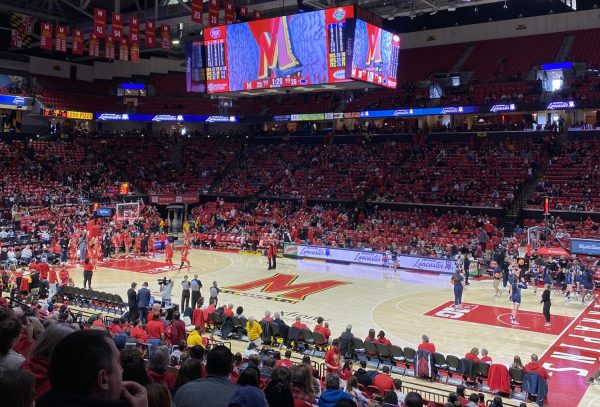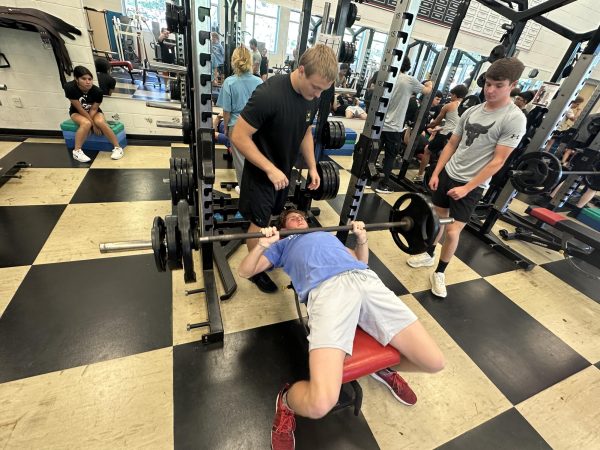Dumb jock stereotype?: Studies show student athletes do better academically
Three senior varsity football players Gary Raney on the left, Ian Faulconer in the middle, and Wade Stieren all participating in their AP composition class.
September 22, 2015
Students who exercise or do any physical activity also perform better in school than those who are not active. A 2013 report from National Academies of Science, Engineering and Medicine about the physical activity of students states that students who are active show greater attention in school. That also they perform better on standardized academic tests than children who are less active.
The Washington Post reported on this study, stating, “Nearly 2,000 California schoolchildren who were outside a “healthy fitness zone” — a 12-year-old who took longer than 12 minutes to run a mile would be outside that zone — scored lower on state standardized tests than those who were more fit.”
Studies have shown student athletes also have better time management and organization skills. Students may struggle with having sports practice after school and homework, but an article from The Guardian reported, “Having both the sport and school to deal with provides the student motivation for training, preparation, stimulating athletes intellectually and relieving stress.”
Linganore varsity football coach, Chris O’Connor said, “Student athletes use time management and organization almost every day. Student athletes must balance games, practices, workouts, family, friends, and school work.”
Coach O’Connor added, “Use of time management and organizational skills gives student athletes advantages during everyday life.”
In the same Guardian article, the head of performance sport at the University of Birmingham, Alex Taylor said, “‘Employers have said that sporting students have the traits they’re looking for, particularly an ability to balance their academic and other commitments, like training for competitions, plus teamwork and decision-making.’” These are all critical life skills a student can gain from being a student athlete.
Linganore senior and varsity football player Dan Ross said, “I stay on a routine every day. School, practice, then homework. When I am overwhelmed with math homework, I go into school for early morning tutoring.”
“I think it does help me outside of school because it teaches me how to organize and deal with my priorities,” he added.
Students athletes do gain advantages from juggling school and sports, and these advantages can help them in everyday life.












